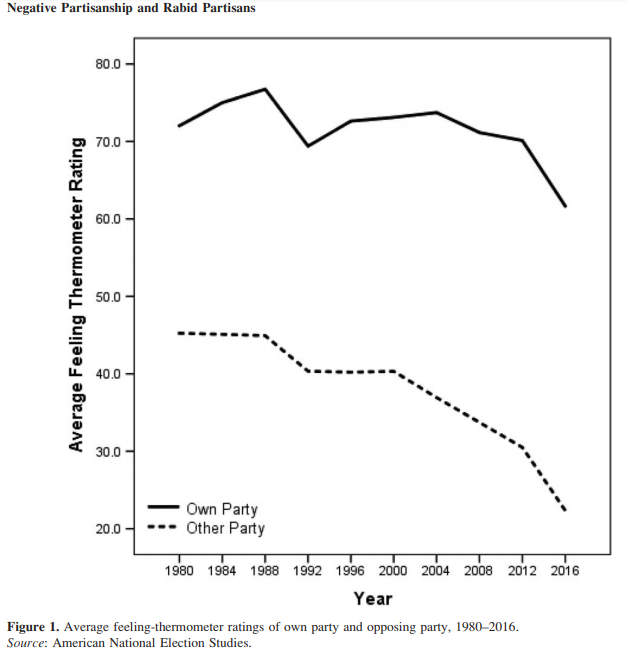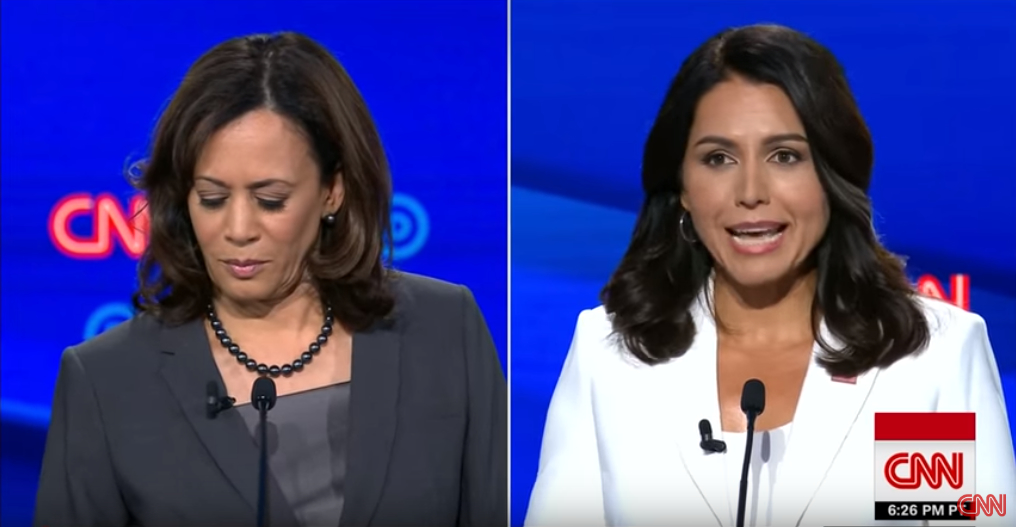On social media, more and more American voters express a growing hatred towards their political opponents. These negative emotions are even more fueled by the tense political atmosphere pervading the Internet as the 2020 presidential election approaches.
“Negative partisanship will decide the 2020 elections”. That’s what forecaster Rachel Bitecofer predicted in 2018. According to her, “Republicans have a prominent stage of negative partisanship going on. Most of that is due to the fact that they feel threatened, and it’s not just their own imagination, they are on the losing end of demographics and the party constantly reinforces that message, as well as their right wing sphere of media, apps, shows …”
The negative emotions people feel in relation to the opposition has increased over the last decade. Several political scientists like Adam Abramowitz from Emory University, have realized that Americans largely align against one party instead of affiliating with the other. Americans also tend to have less and less empathy for their own party and it is even more true regarding the opposing party.

The concept has been labelled “negative partisanship”, a notion referring to those voters who are more motivated to vote by their fears of the bad things the opposition party will bring rather than the good things they hope their own party will do. First developed by political scientists studying countries with multi-party systems, such as Canada and Germany, the concept applies even more clearly to the US.
Today, instead of pushing voters into the future, politicians simply have to stir up voters’ hatred of the opposing party to gain voter support.
The ideological gap between the candidates running for the Democratic nominee also shows, according to Rachel Bitecofer, how pervasive negative partisanship is: “In 2016 we saw interparty fighting was already prevalent [Ed. between Sanders and Clinton]. Right now, there doesn’t seem to be any difference when we observe what’s going on in the media, or on Twitter. We could say that the party is just as fractured, maybe even more, as it was in 2016.”
“ The entire partisan network of the right wing media will cover the primaries ”
The next debate that will air on January 14th will bring together a heterogenous audience and as we’re getting into the formal primaries, one can bet that more and more people will pay close attention to the debates. “Adding to the self identified democrats with a heightened interest in politics, more average Democratic supporters will tune in. Activists or people who volunteer in grassroots organisations will also be watching. Highly politically engaged Republicans who want to understand what is happening on the other side, and who love politics, will watch the debates as well. The entire partisan network of the right wing media will also cover this news and be part of it. And of course, so will people from the rest of the media world, election analysts…” explains the political analyst, Rachel Bitecofer.
In the context of the 2020 elections, Republicans may not like President Trump, but they also hate his opponents. Their votes will naturally turn to Trump in their efforts to discredit the Democrats.
For Rachel Bitcofer one thing is clear: no matter who wins, America will always lose. “We are going to be in for the long haul here unless something catastrophic happens to reset the mood of the nation.”
Do the media play on negativity to gain viewers ?
For Rachel, the media has played an important role in the increase of negative partisanship. “The media tends to focus on things that are controversial”. In the Trump era there’s so much coming at the media that they have to cover, and that is negative, that they don’t have much of a choice. There’s more scandal, more corruption, more pushing at government than there have been in previous decades. There’s more negative news to follow.
For example, in this video, CNN chooses to focus on the clash between Tulsi Gabbard and Kamala Harris.

https://www.youtube.com/watch?v=Y4fjA0K2EeE
If the media has chosen this way of handling information, it is, according to the analyst, mainly for money : “Here, sphere capitalism is marketed via news outlets and radios.” But also to boost the audience. “The purpose of the media is to track viewers and grow audience sizes by playing into people’s emotional instability and paranoia”.
An Article by Alexandra Lassiaille, Lauriane Vofo Kana and Matthias Hardoy
